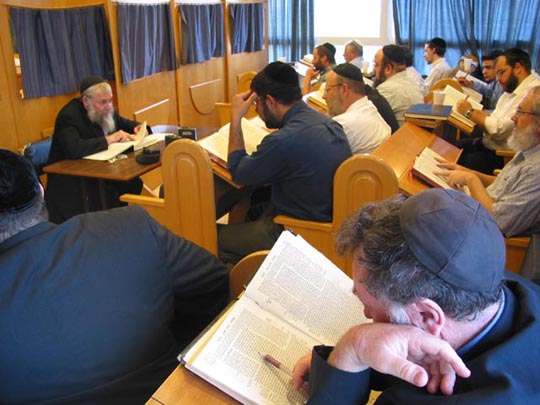Jan 18, 2012
Do It for Them
Another thing (in addition to Tehillim lists) I haven't gotten a satisfactory explanation for is when people announce at a shiur or event that the learning should be a zechus or l'ilui nishmas someone. What does that actually mean?
I would understand if people got together solely for the purpose of providing a zechus for someone, but if the shiur is happening regardless, because it's a weekly or daily event, how does tacking on the words "this should be a zechus" accomplish anything?
So too, the calls for "Do a mitzva for ----." If someone does a mitzva as a zechus for someone else, does that mean they forgo the reward of that mitzva and bestow it on the other person? That's an enormous gift! Is that what they mean?
I saw lists of mitzvos that people from all walks of life committed to doing in honor of the slain Holtzbergs. I can understand being moved by the Holtzbergs' devotion to the Jewish people and how they enabled and encouraged others to do mitzvos, and wanting to do something that they valued, i.e. a mitzva. If that is what they mean by doing a mitzva in their honor, fine.
But how about pages in books, and entries on websites, which say "dedicated to ..." What does that mean? The person paid money for what purpose? I must be missing something because to me, it simply looks like a way for the publisher to raise money and for the person to have a name mentioned. Does it go beyond that to accomplish anything else?
Everyone else seems to go along with it as though it makes sense. I just don't get it.
Subscribe to:
Post Comments (Atom)




I guess that when we learn in the merit of someone who has passed on, we are doing a mitzvah that they can no longer do. They can still get merit for mitzvahs that are done in their memory.
ReplyDeleteI can understand it more readily when children do it for their parents. The parents brought the children into the world and the mitzvos the children do are a credit to the parents even if the parents did not raise them religiously.
ReplyDeleteThere is a story told about Rabbi Akiva who took an uncircumcised, unlearned orphan boy under his wing. He taught him the Shema and Shmone Esrei and Birkas Ha'Mazon. Then he stood him before the congregation and he said Barchu and they answered him. He said Kaddish and they answered him, "Amen! Y'hay shmai rabba m'vorach!"
His dead father was freed from gehinnom and came to Rabbi Akiva in a dream to tell him so.